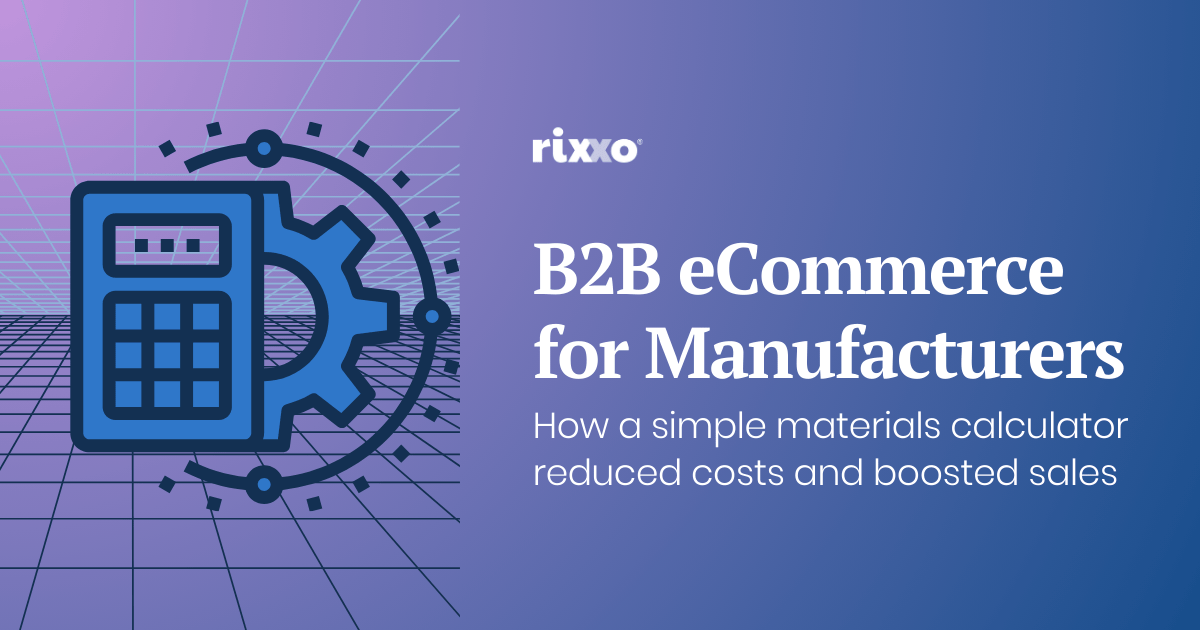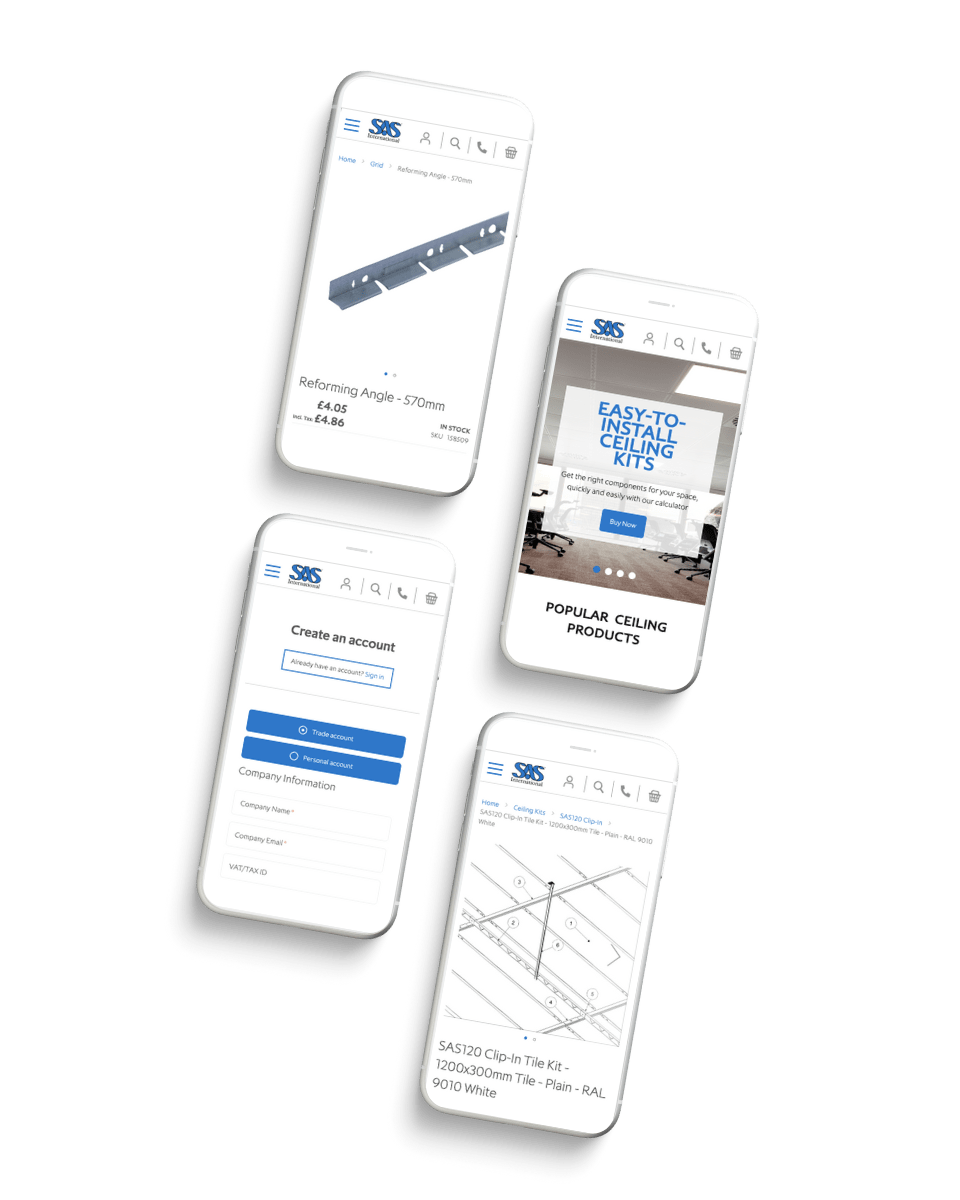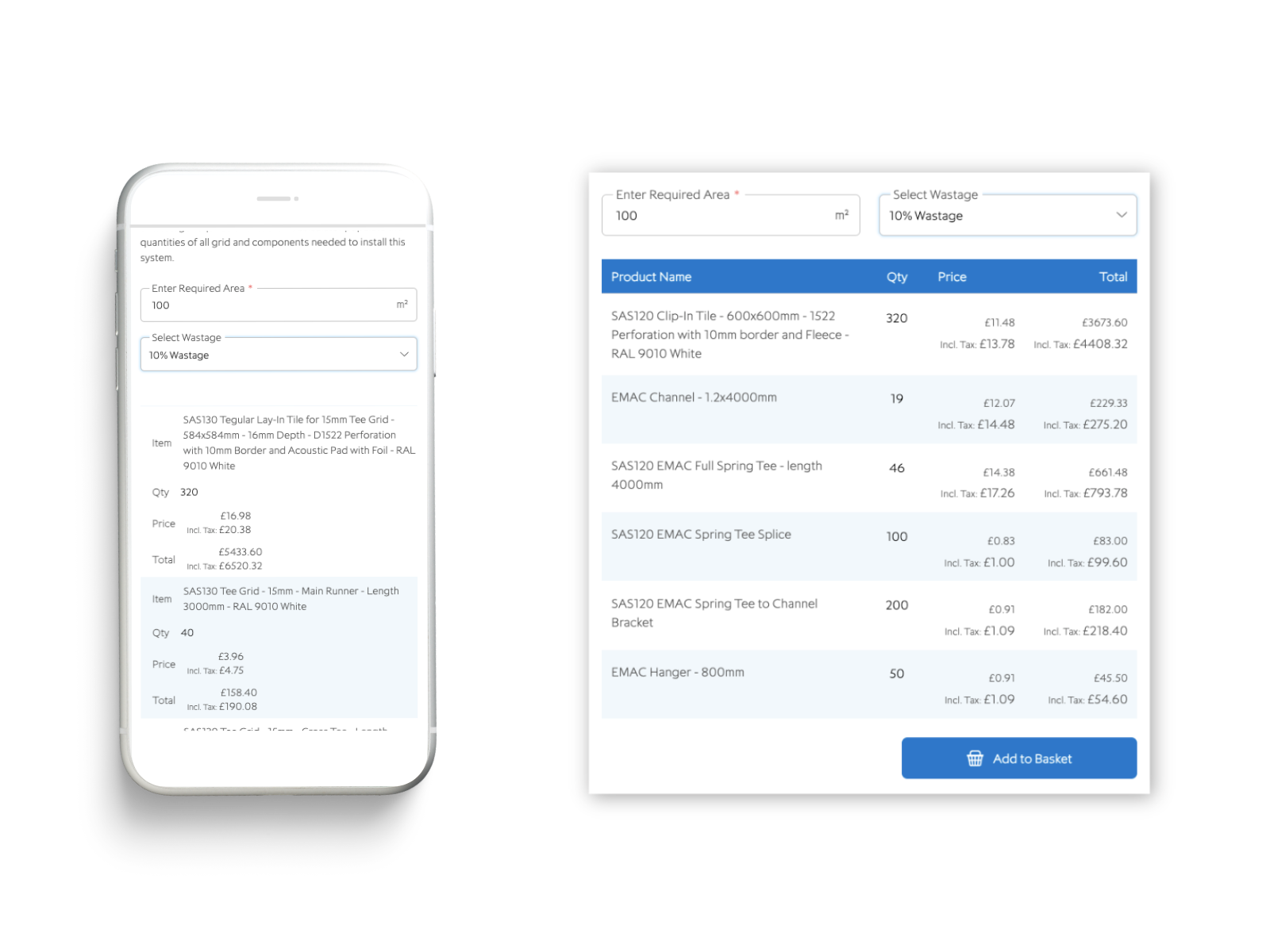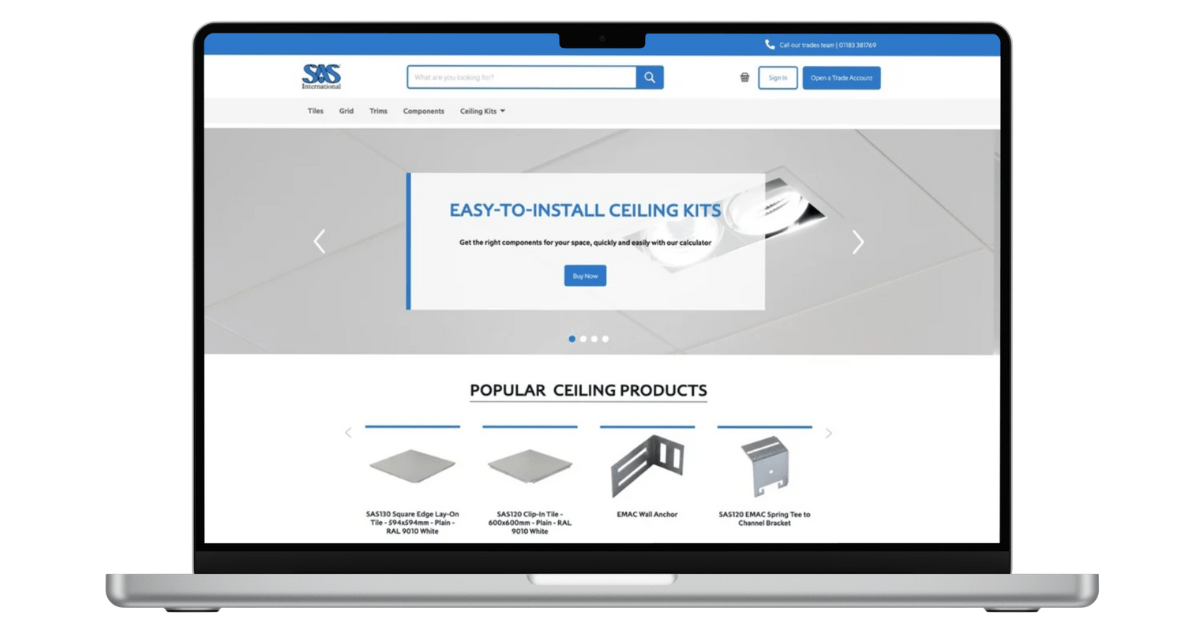B2B eCommerce for Manufacturers: How a Simple Materials Calculator Reduced Costs and Boosted Sales

SAS International is a leading British manufacturer of architectural metalwork and ceilings. Known for high-quality materials, SAS’s acoustic ceilings improve the look and sound of commercial spaces worldwide.
As an eCommerce agency specialising in B2B, we were thrilled when SAS approached us to build their first B2B eCommerce site. They needed a flexible platform that could expand with their business, cater to multiple countries, and provide a great buying experience for their B2B customers.
The obvious choice for SAS was Magento, which can handle different currencies, languages and tax rules, making it a future-proof choice for SAS’s plans.


Key feature: The ceiling tile calculator
This article highlights a key feature we developed for SAS International’s new eCommerce store: the ceiling tile calculator. It’s a smart materials calculator that streamlines the ordering process by precisely calculating the required number of tiles and fixings from the area dimensions and anticipated wastage input by users


Enabling customers to order exactly what they need, with minimal waste provides a great user experience and is especially relevant for B2B customers. A simple materials calculator like the one built for SAS International could be useful for multiple industries, including:
- Construction and building supplies: For calculating materials like tiles needed for construction projects.
- Landscaping: To estimate quantities of soil, mulch, or stone required for various projects.
- Home renovation: Useful for DIY enthusiasts to calculate paint, flooring materials, or wallpaper.
- Manufacturing: To determine raw materials needed for production based on product dimensions and batch sizes.
- Interior design: For architects needing to calculate panels required for furniture or structures.
- Fabrication and metalwork: Similar to SAS, other fabricators might need calculators for materials like steel or aluminium for their projects.
Challenges and solutions
An initial consideration was how to convert product specifications, which were originally designed for human interpretation, into a format that could be understood and used by a computer program.
This was challenging because it used to be a task completed by individuals who relied on specific processes and their own judgment. Their goal was to automate this conversion while ensuring the calculators were easy to create for each product and easy to use for the end customer.
We approached the problem by breaking down the client’s requirements into a spreadsheet format that worked well. Once we had a suitable model, we translated it into the desired format.
Additionally, we used pre-existing products and adapted a group product — which is formed by combining several other products — making it straightforward for customers to customise and add to their shopping carts.
Building a user-friendly interface
We designed the interface with a clear grid layout that displays product SKUs, names, prices, and quantities. We adopted a grouped product model, allowing customers to select products and specify quantities per square meter.
A grouped product model in eCommerce refers to a system where multiple related products are displayed together on a single page. This model allows customers to select quantities of each product individually but purchase them as part of a group. It’s commonly used for items frequently bought together or with variations essential to a main product, making it easier for customers to configure and order all necessary components simultaneously.
Including the box size on the product listing makes it easy for customers to configure the calculator, add products, and determine necessary amounts.
Respecting budgets: Making use of Magento components
For efficiency and to respect our client’s budget, we used existing Magento components. By adapting existing system components we developed a solution that met our client’s needs without overly complex or time-consuming development work.
Lessons learned
At Rixxo, we value the thorough initial scoping of projects. In our experience, delving deeply into a client’s needs early on always pays dividends later on. Indeed, this project highlighted exactly that, as our eventual solution was our third idea, refined through this meticulous process of questioning and testing ideas.
We also enhanced our approach by prototyping complex ideas in spreadsheets before development. This strategy reduces the developers’ workload by clarifying concepts and streamlining implementation, easing the translation into the final product.
Another key takeaway is leveraging existing components whenever possible. Not everything requires custom coding, which saves time and respects the client’s budget, proving that efficient use of resources can lead to successful outcomes.
Impact and client feedback


SAS International has received universally positive feedback on the ceiling tile calculator, particularly for its user-friendliness. As a result, SAS has broadened its product range to meet a wider array of customer needs.
SAS International’s first eCommerce project, combined with the ceiling tile calculator is a resounding success.
This seemingly small and simple addition of a custom feature enhanced the user experience, making the buying experience easier for customers. This has enabled SAS to expand it’s product offerings and reinforce its reputation in the industry.
Consider how a client-focused approach, coupled with innovative solutions, can revolutionise your B2B eCommerce efforts. Such strategies exceed customer expectations, fostering loyalty and driving business growth.
Do you have a custom feature in mind for your eCommerce store? Reach out for a chat, it might be far simpler to get done than you think.
